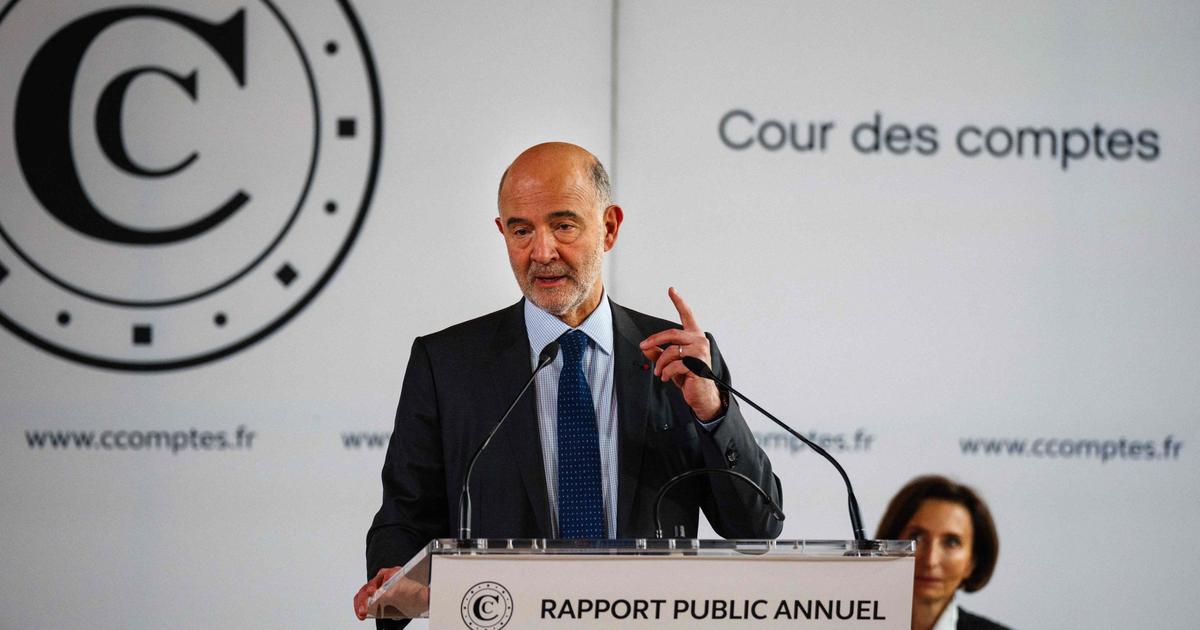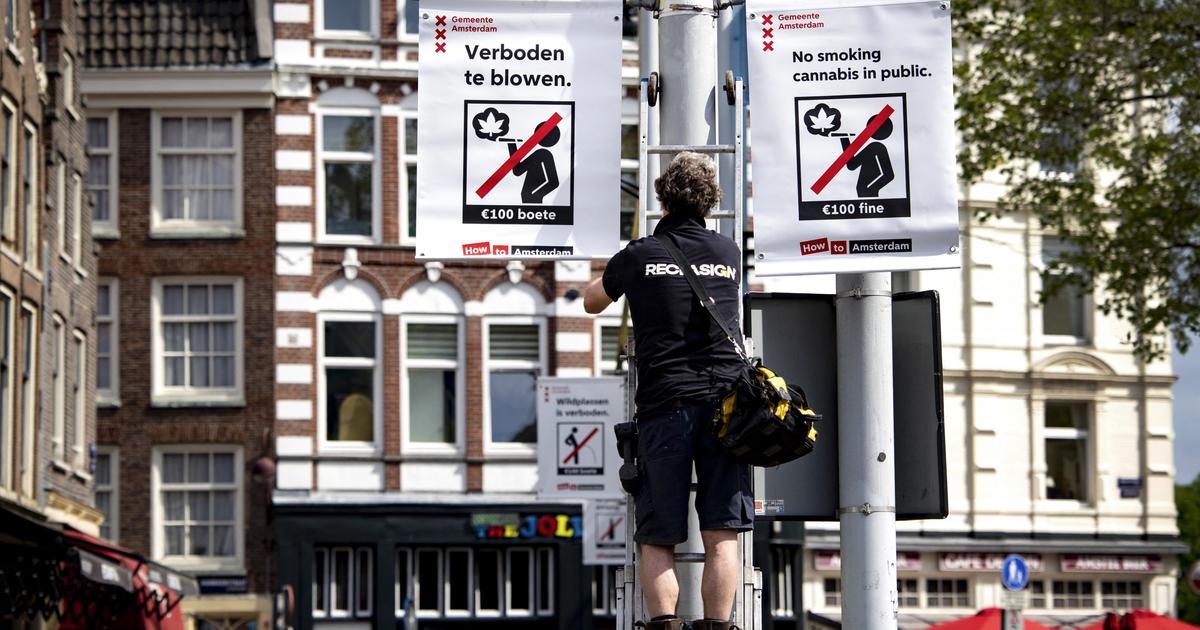No new containment for the moment, but an additional turn of the screw.
In a short speech of just over five minutes, Jean Castex announced several measures on Friday evening to deal with the Covid-19 epidemic.
Two subjects were mainly discussed: borders and trade.
Any travel to or from a non-European country is prohibited, except for compelling reasons, since this Sunday.
To come to France from a European country, it is mandatory to present a negative PCR test.
In addition, non-food shopping centers of at least 20,000 m2 must close as of this Sunday.
All this obviously generated many practical questions.
Here are our answers to the main ones.
Which countries are subject to the travel ban with France?
If Jean Castex mentioned the countries "outside the European Union", they are actually those outside "the European area", said Friday evening on Twitter the Secretary of State for European Affairs, Clément Beaune , and as confirmed by Matignon at Le Parisien.
This includes those from the EU as well as Iceland, Andorra, Liechtenstein, Monaco, Norway, San Marino, the Vatican and Switzerland.
# Borders |
❗️ From Sunday midnight:
👉🏻 Unless there is an overriding reason, no travel from or to non-European countries
👉🏻 Within the European area, PCR test obligation except for frontier workers and road transport
- Clement Beaune (@CBeaune) January 29, 2021
"Any international travel - from abroad to France and from France to abroad - remains totally and strictly discouraged until further notice," the Ministry of Foreign Affairs had previously pointed out on its site.
If I am abroad, can I return to France?
If you are French or European and your main residence is in France, you are allowed to reenter.
Your spouse and children can also travel with you.
This therefore concerns all French and Europeans who left (before this Sunday) on vacation or traveling outside the European area and who live in France.
Morning essentials newsletter
A tour of the news to start the day
Subscribe to the newsletterAll newsletters
From midday this Saturday, several government sources had indicated to the Parisian that this principle seemed to them "acquired", because it would be "inconceivable to prevent them".
"I passed a list of reasons that seem reasonable to me and I was told that they had been taken into account", confided in the afternoon Roland Lescure, LREM deputy of the French abroad.
Still if you are French or European but you live abroad, you can come to France provided you have a compelling reason for traveling.
This can be family, health, or professional.
A long list appearing on the certificate (to be downloaded from the website of the Ministry of the Interior since Saturday evening late) mentions, for example, the death of a loved one, a resumption of studies, a "vital medical emergency" or another professional mission "which cannot be postponed".
If you do not have the nationality of a European country, many cases give the right to come to France.
We find in particular the possession of a French or European residence permit (on condition of living in France), the fact of having to seek treatment in France, or the fact of working as a coach driver or in transport. merchandise.
Here too, the complete list can be found on the certificate.
What steps do I have to take to return to France?
In addition to your correctly checked travel certificate, you must in any case present a negative PCR test result to be able to return to France.
You will also need to complete two sworn declarations.
The first, attesting to an absence of symptoms of Covid-19 and contact with an infected person.
The second, committing you to isolate yourself for seven days on arrival and then to take a new test at the end of this period.
READ ALSO>
Covid-19: the impossible control of the isolation of passengers arriving in France
If you are arriving from a state where the PCR test cannot be performed prior to departure, you will need to be tested upon arrival.
You will then also have to commit to staying in isolation for seven days, possibly in a hotel or a place on a list drawn up by the French authorities.
Travelers coming from a country located in the “European area” must also present a negative PCR test (done less than 72 hours before departure) and a sworn declaration attesting in particular that they do not present symptom of Covid-19 infection.
They will then simply be "strongly recommended" to isolate themselves for seven days once they arrive in France, then to repeat a second virological screening test at the end of this seven-day period.
Any travel from or to overseas from the mainland must now also be justified by a compelling reason.
Can a foreigner leave France?
If he returns to his country, yes (subject to the conditions set by it).
If he has to join another State outside the European area, he will have to justify his trip by an overriding reason (death of a loved one, resumption of studies, legal or economic impossibility of staying in France, etc.).
In Europe, who will not be subjected to a PCR test?
Only cross-border workers, residents of border living areas within a radius of 30 km around their home and truck drivers are not required to present a negative test to enter France.
I have to go to London for a business trip, can I cancel?
Not necessarily.
But you will have to justify that this trip is "essential for the pursuit of an economic activity" and that it "cannot be postponed".
A certificate from the employer will be required.
How will the land borders be controlled?
It is of course unimaginable to ensure that travelers arriving in France from another European country all have a negative PCR test.
In a telegram sent to the prefects on Friday evening and which Le Parisien was able to consult, the Minister of the Interior Gérald Darmanin asked to "deploy random checks in stations and main crossing points".
When does this measure come into effect?
Jean Castex first indicated “Sunday at midnight” before his teams wrote “Sunday at midnight” on his Twitter account.
To remove any possible ambiguity, border restrictions began at midnight on the night of Saturday to Sunday, as Clément Beaune had indicated.
Any entry into France and any exit from our territory to or from a country outside the European Union will be prohibited, except for compelling reasons, from midnight Sunday.
pic.twitter.com/z0FyyhF4gI
- Jean Castex (@JeanCASTEX) January 29, 2021
Which businesses must close?
"Non-food shopping centers of more than 20,000 m2", "that is to say those which promote the most brewing", must close, announced Jean Castex on Friday.
The Ministry of the Economy gave details on Saturday on the type of store concerned:
- non-food stores with more than 20,000 m2 of useful commercial surface;
- non-food stores in shopping centers and shopping malls with a useful commercial area greater than 20,000 m2.
The 20,000 m² are calculated by adding together all of the retail space, food or not.
These details can be found in the decree published last night in the Official Journal.
READ ALSO>
Places that close and those that remain open
How many shopping centers will have to close?
Non-food shopping centers of more than 20,000 m2, that is to say closed shopping malls, are 396 in France, according to a brochure from the National Center of Shopping Centers (CNCC) dated January 1, 2020. That is to say close to half of the total of shopping centers in the country.
Are large outdoor shopping centers affected?
"Shopping areas, business parks and branded villages where the circulation of the public between shops takes place outside are not affected and can remain open," says the Ministry of the Economy.
On the other hand, “buildings of more than 20,000 m2 combined connected by closed and covered aisles in these areas must close.
"
For how long will they be closed?
They will remain closed for a month.
"But this calendar may change depending on the evolution of the health situation," says Francis Palombi, president of the Confederation of traders of France.
Can closed businesses continue to operate for delivery activities?
The delivery of their products remains possible.
On the other hand, they do not have the possibility of making click and collect or order withdrawal.
Do food stores in a large shopping center have to close?
In the shopping malls of the centers concerned, "all food stores will be able to remain open, including grocery stores, chocolate shops or other food retailers", indicated Saturday Jacques Creyssel, general delegate of the Federation of commerce and distribution.
The hypermarkets and food supermarkets present in these centers can therefore remain open, but they will be upgraded.
Everything will be put in place to restrict attendance and limit too large groupings (see below).
Pharmacies also remain, by dispensation, open.
READ ALSO>
The closure of large shopping centers divides professionals in the sector
Should a hair salon in a shopping center close too?
It all depends on the size of the mall.
"If the show is located in a shopping center of less than 20,000 m2, it can remain open," noted the National Center of Shopping Centers (CNCC) on Saturday.
Which shopping centers must close in Paris?
They are new, according to the list unveiled by the police headquarters on Saturday evening.
It includes Italy 2, the Forum des Halles, or the BHV.
Only food stores and pharmacies inside will still be able to welcome customers.
In accordance with the Prime Minister's announcements, shopping centers and department stores with an area of more than 20,000 m2 must close their non-food businesses, with the exception of pharmacies, as of Sunday January 31.
Find the list 👇 pic.twitter.com/tewyFle176
- Police Prefecture (@prefpolice) January 30, 2021
How many customers can a business accommodate?
The gauge of customers authorized to enter a store will change from Monday for businesses of more than 400 m2: only an average of one person per 10 m² will be accepted (compared to one person for 8m² previously).
In areas with high traffic, such as fruit and vegetable departments, measures will be taken to limit groupings.
Only one customer per shopping trolley will be authorized.
Shops of less than 400 m2 keep the one-person gauge for 8 m2.
Is teleworking compulsory?
No, but the government calls for this measure to be favored, including in public administrations.
“In all companies where it is possible, recourse to teleworking will be reinforced,” said Jean Castex.
This practice has experienced a slight decline since the end of the second confinement.
According to a study by the Ministry of Labor, between November 2020 and the end of January 2021, the number of employees declaring to telework full time fell by 15%.
READ ALSO>
Teleworking and corporate life: "We like to see people, we miss discussions"
Are schools going to close?
For the moment, schools will continue to welcome their students.
The idea of keeping schools closed after the February holidays was not raised during the Prime Minister's speech on Friday.
"Keeping schools open thanks to strict protocols contributes to the good mental health of the students", had justified the Minister of Education Jean-Michel Blanquer, in the JDD last week.



/cloudfront-eu-central-1.images.arcpublishing.com/prisa/OOLBKF5K4VFN7EA7IFFA4PMVUE.jpg)





